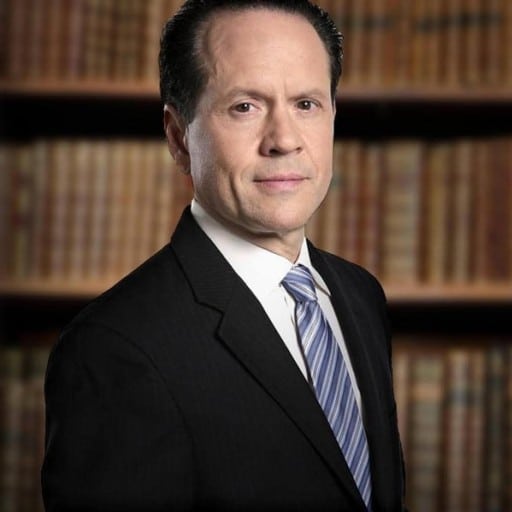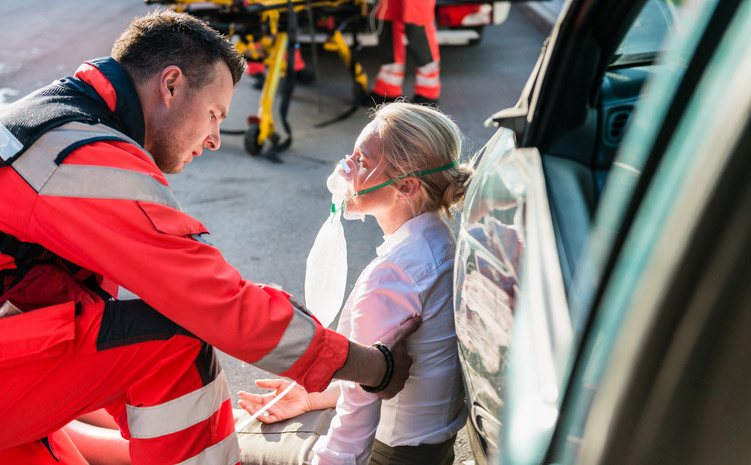Car Accidents Caused by Seizures and Medical Conditions
When someone makes a driving error that causes a driving accident, the driver may be legally liable to the victims for their injuries. But what happens when the accident occurs because of a medical emergency? In Florida, the answer isn’t always immediately apparent. Here’s what you should know about medical condition crashes from our Miami car accident lawyers.
What Happens When a Medical Condition Causes a Car Accident?
When a medical condition causes a car accident, the person who has the medical event may or may not be responsible to the victim for their injuries. Whether the person with the medical issue has legal liability to the victim depends on whether the event was foreseeable. State laws may impact what happens when a medical condition causes a car accident.
Medical Emergency Car Accident
A medical emergency car accident is an accident that occurs because of a sudden medical event. The emergency causes the driver to lose control of the vehicle and cause an accident. Whether the driver is responsible for a medical emergency car accident depends on state law. In most states, the driver is responsible if the accident was reasonably foreseeable because of advanced knowledge of the medical condition.
Medical Condition Car Accidents in Florida
The general rule is that Florida is a no-fault state. That means that each party is responsible for their own damages for minor car accidents. When serious accidents occur, the party who causes the accident may be liable for their injuries. The standard is negligence — When a driver doesn’t exercise a reasonable amount of care, they’re liable when serious injuries occur. Generally, a driving error on the road amounts to negligence.
However, when the driving mistake happens because of a medical condition, the answer isn’t so clear. To be legally liable for damages, the medical event must have been reasonably foreseeable. The driver must have had some indication that the medical event was a possibility. A driver isn’t liable for unforeseen events. Instead, they’re only responsible if they knew that the medical event was a reasonable possibility.
Blackout During a Car Accident
If a person has a blackout during a car accident, the blackout may be the result of the car accident. The blackout may also occur before the accident because of a medical condition. Whether the blackout happens before or because of a car accident may be a critical piece of the puzzle in determining whether the driver has legal liability for causing the accident. The medical evidence may be extremely important to the case.
Seizure and Epilepsy Caused Car Accident
In a seizure caused car accident, it’s important to seek medical treatment as soon as possible. If a person knows that they may have a seizure, they shouldn’t drive a vehicle. When a person knows that a seizure may cause a car accident, they may be legally liable to victims if they cause an accident.
The victims may be able to obtain medical records to prove that the driver had prior knowledge of a seizure disorder. If a seizure occurs and the driver had no previous knowledge of any medical condition that could cause a car accident, the driver is not liable to victims. In that case, each victim has to pay for their own damages.
Florida Standard for Medical Event Car Accident Liability
The Florida standard for medical event car accident liability is whether the accident was reasonably foreseeable. Once the victim shows that the crash occurred because of the negligence of the other driver, it’s up to the other driver to present the sudden medical event defense. The steps to proving the defense are:
- A driver suffers a loss of consciousness or incapacitation.
- The loss of consciousness or incapacitation doesn’t occur because of negligent conduct on the part of the driver. In other words, the driver didn’t have any reason to know that the medical event was a possibility.
- The loss of consciousness was sudden. The driver couldn’t have seen it coming.
- There was no reason that the driver should have known to take action to prevent the loss of consciousness. They may not be aware of any facts that would make a reasonable person think the accident was a possibility.
If they can prove their defense, the driver is relieved of legal liability for the accident. The driver must prove every element of the medical emergency defense.
Who Decides If the Medical Event Defense Applies to a Car Accident?
It’s up to the jury to decide if the medical event defense applies to a car accident. Whether the medical event occurred and whether it was foreseeable depends on the facts of the case. Often, deciding the case requires a detailed look at the medical evidence, the testimony of the parties, and how the accident occurred. Ultimately, the jury makes the final decision of whether the driver has met the elements of the medical event defense.
Feagle v. Purvis and the Medical Emergency Exception
One well-known Florida case that explains how the medical emergency exception works is the Feagle v. Purvis case. The defendant had a known heart problem. He declined diagnostic testing for the heart problem on six different occasions. However, the doctor didn’t place any restrictions on the defendant driving.
One day, the defendant drove a boat. While driving, he suffered a heart attack and died. The boat flew out of control and hit a victim.
The court used the Feagle case to explain the elements of a medical emergency defense. The court made clear that refusing diagnostic testing doesn’t automatically mean negligence. They said that it’s up to the jury to decide whether the medical defense applies.
Contact Our Florida Attorneys for Car Accidents
Have you been in a car accident? Was a medical event involved? You have rights.
Car accidents that involve medical events are complex. You must work diligently to gather the evidence and prepare the legal arguments to win your case. Our attorneys have more than three decades of experience fighting for car accident victims.
Let us fight for you until you have the compensation that you deserve. Don’t wait any longer. Call us today for a free consultation about your case.
About the Author

Jack G. Bernstein, ESQ.
Jack Bernstein is a hard-working and highly motivated personal injury attorney in Miami, Florida with over three decades of experience. He is a strategist and idea person, with a genuine passion for helping his firm’s clients. If you’ve been injured, contact Jack Bernstein today for a free evaluation of your case.

